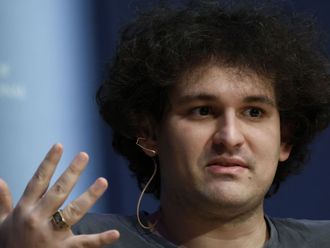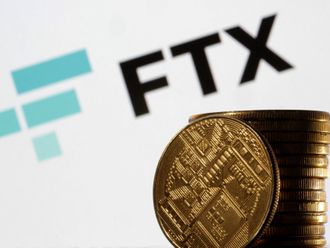Dubai
Interest in cryptocurrencies has exploded globally, and the United Arab Emirates and the Gulf region are no exception. Some champion cryptocurrencies, others rebuff it as the latest market bubble ready to haemorrhage. The Securities and Commodities Authority (SCA) UAE, for example, has expressed concerns about trading in cryptocurrencies, and has issued a public warning statement on initial coin offerings. 1
As Middle East governments look to diversify national economies, promote greater public and private sector experimentation in blockchain technology, and encourage enhanced contactless transaction payment system utilisation, the swelling interest in cryptocurrencies is unlikely to subside. The pivotal concern for UAE and Middle East investors revolves around the best investment strategy they might adopt to profit from the cryptocurrency interest, and future developments.
Future currency
One approach is to hold it as a ‘currency’ for future transaction settlement. In its purest form, a cryptocurrency is universal and borderless, unregulated by any given entity, and in theory can be accepted anywhere. Such properties make cryptocurrencies an attractive means for completing a broader set of economic transactions with more diverse participants that creates increased efficiency while reducing costs.
However, cryptocurrency development as a form of ‘currency’ is presently (and potentially longer-term) problematic. Historically, a currency is defined by three key pillars: (a) store of value, (b) unit of account, and (c) medium of exchange. Applying these pillars to cryptocurrencies highlights major deficiencies including extensive value volatility, lack of transparency and legal clarity, and uncertainty of long-term continuality of individual cryptocurrencies. These deficiencies significantly undermine the viability as a store of value, and unit of account.
Creating the environment to function as a ‘currency’ will likely involve greater regulatory intervention and oversight. The Financial Services Regulatory Authority (FSRA) of the Abu Dhabi Global Market (ADGM) has expressed interest in value of cryptocurrencies as ‘currency’ but stipulated this will likely require development of a robust, risk-appropriate framework. Increased public sector investment to harness and drive cryptocurrency development that adopts traditional underlying ‘currency’ properties may create a stable exchange mechanism but ultimately curtail investor interest and investment returns.
Crypto-‘asset’ may be a more befitting term and a lens through which cryptocurrencies can be defined as an investment vehicle. A primary advantage of viewing cryptocurrencies as a class of assets is that they are essentially non-correlated with the traditional market, thereby, offering diversification benefits. Also, relative to other asset classes, cryptocurrencies have lower barriers-of-entry than more sophisticated and mature counterparts.
Volatility
Extreme value volatility, however, underscores difficulties in assessing the intrinsic value of cryptocurrencies that may result in investors experiencing a significant permanent loss of capital. Also, the lack of clarity on the legal and tax status of cryptocurrencies creates substantial uncertainties and risks, while the significant potential for an influx of new cryptocurrencies raises the threat of a substantial dilution in investment values. Finally, a lack of diversity between cryptocurrencies further intensifies investor risks.
For ultra-high and high-net worth UAE investors, particularly those with a high-risk tolerance, cryptocurrencies as a new asset class offers additional portfolio diversification opportunities with enhanced portfolio return potential. Such investors will also likely have the resources to absorb any losses encountered from investing into cryptocurrencies.
For UAE investors with less investable resources, and/or lower risk appetites, the speculative investment nature, multiple uncertainties and heightened risks associated with cryptocurrencies, may make cryptocurrencies less attractive as a separate and distinctive class of assets for investment and portfolio diversification. The evolutionary development stage of cryptocurrencies, however, offers a silver lining for the general UAE investor.
The future development, nature and function of cryptocurrencies will be driven by underlying technology advances. Investment into the surrounding digital and IT cryptocurrency ecosystem, therefore, likely exposes the general UAE investor to less volatility and risk and may yield greater benefits from more stable tangible cash flow generating sources than direct cryptocurrency investment.
Cryptocurrency development is probably unstoppable, and potentially offers investment opportunities. How to capture these opportunities remain unclear. Short-to-medium term, investment as a ‘currency’ appears premature whereas utilisation as an asset class for portfolio diversification and return enhancement is best suited to ultra-high and high-net worth investors. For the general investor, focusing on the surrounding cryptocurrency ecosystem may yield greater benefits with less heartache. As the underlying technology evolves and shifts the precise investment strategy may adapt and change. Time will tell.
J-L. W. Mitchell Van der Zahn is a Member of CFA Society Emirates.











